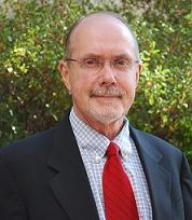 Virtual SciDataCon 2021 starts with an Opening Plenary Session, featuring a keynote from George Strawn. It is followed by a double session on FAIR Digital Objects, looking at the why and the how of this approach to achieving the FAIR principles.
Virtual SciDataCon 2021 starts with an Opening Plenary Session, featuring a keynote from George Strawn. It is followed by a double session on FAIR Digital Objects, looking at the why and the how of this approach to achieving the FAIR principles.The internet age and the digital revolution promised great advancements for science and for humanity. During the COVID-19, we have witnessed some remarkable achievements (the unprecedented speed of vaccine development) and the persistent shortcoming of the current science system (including faulty and fabricated data, inadequate data sharing). As we begin to look beyond the pandemic, there is a new urgency in the Open Science and FAIR data movements to mobilise 21st century technology to address even more pressing global challenges, including climate upheaval, sustainable development, and disaster risk reduction. The considerable investment in research infrastructures and Open Science Clouds are witness to this urgency, but their potential must be realised.
Our opening keynote speaker, George Strawn, predicts that the next twenty-five years will focus on artificial intelligence and data. Supporting by the FAIR principles, the ‘Data Spaces’ of the future will maximise the automated analysis of data while retaining necessary protections. What does this mean in practice, what are the mechanisms by which this can achieved and what are the challenges and opportunities? Dr. Strawn will open SciDataCon with an examination of the characteristics of the different ages of information technology and their significance. With the emergence of the Internet, IT entered its second age. As FAIR data emerges, it will enter its third age. The talk will also offer a vision of the future, highlighting the most important developments and steps to be taken to realise such future data spaces.
Barend Mons, CODATA President, will give a short response presenting a vision of the web of FAIR data and services. The discussion will be led by session chair, Bonnie Carroll, WDS and CODATA.
